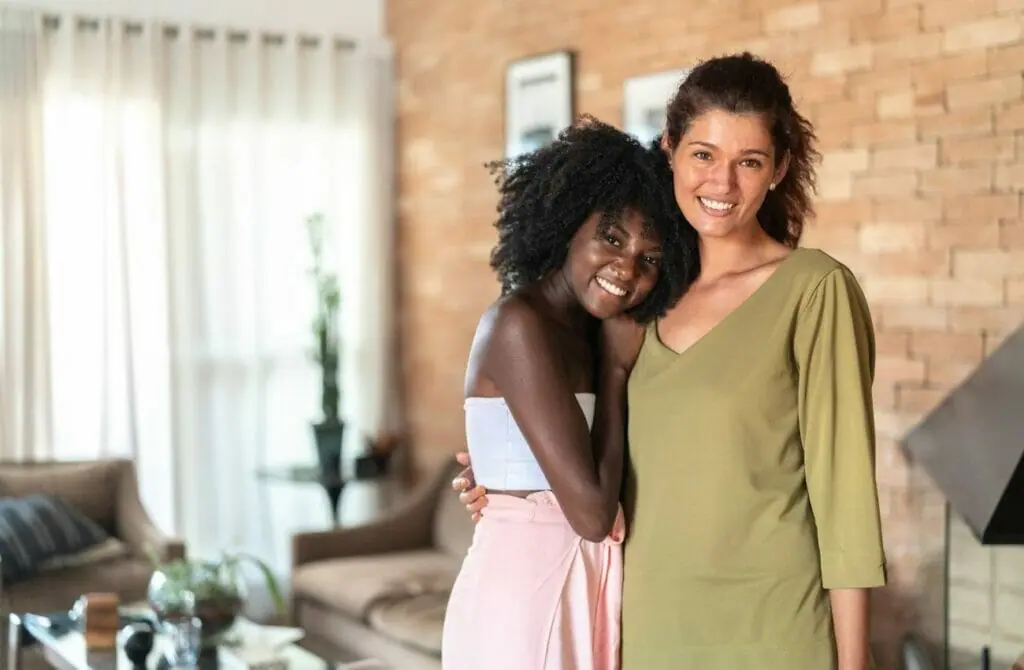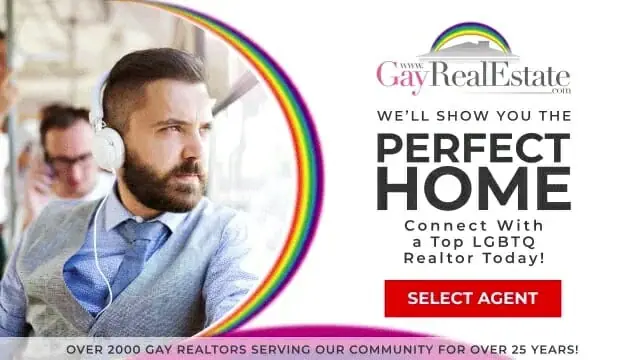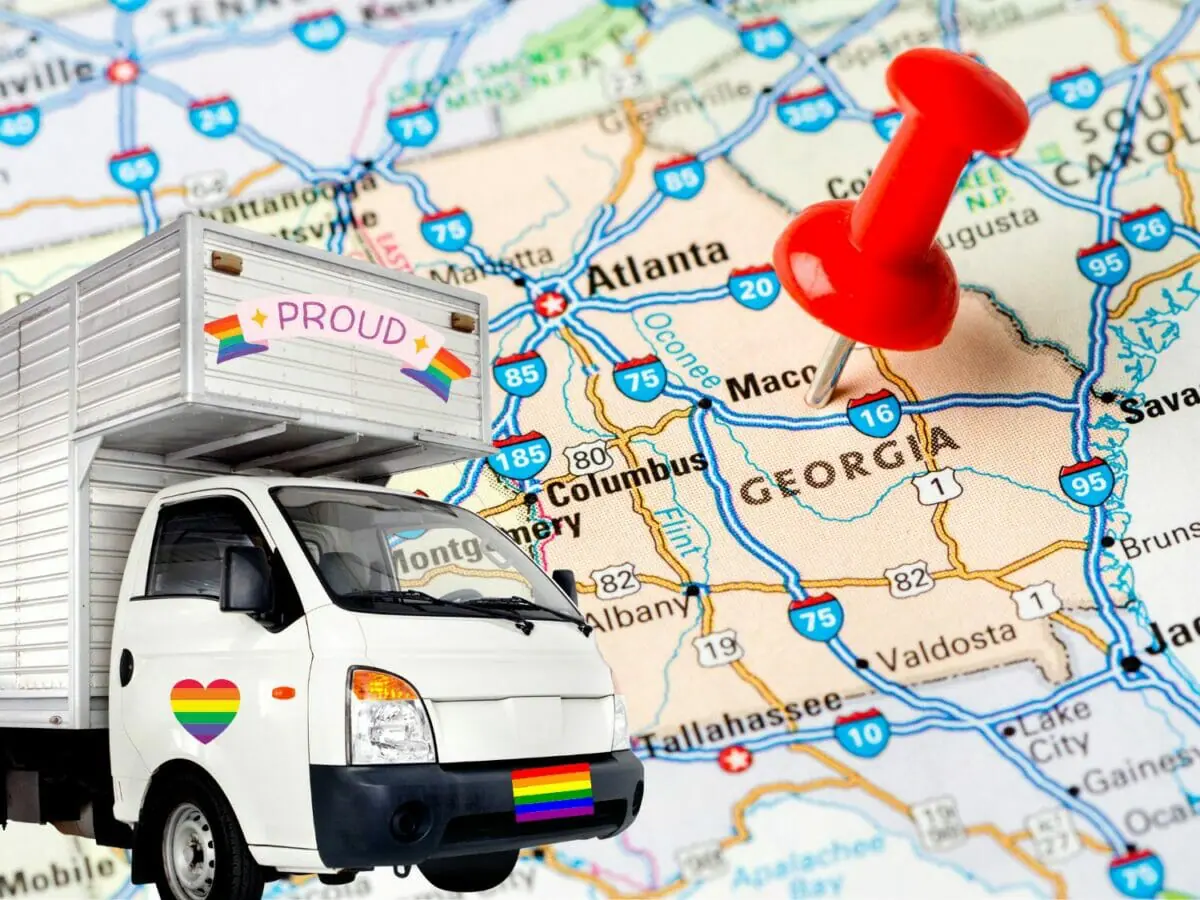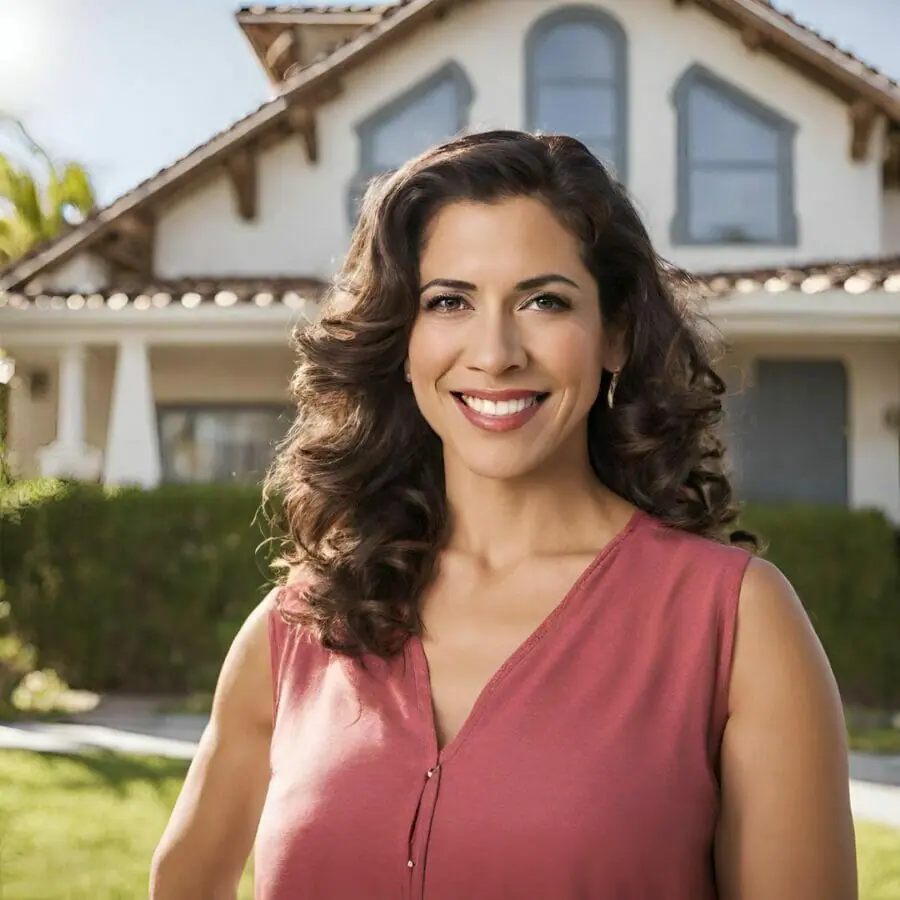One of the most common thoughts you might have before relocating anywhere is how accepting the locals are towards the LGBTQ+ lifestyle. It is a very valid concern and something that sadly still needs to be considered in this day and age.
You’re in luck, however, if you’re a member of the LGBTQ community and you’re considering moving to Gay Georgia!
We’ve put together a comprehensive guide that will help you with everything you need to know about the state, from whether it’s LGBT-friendly to its most gay-friendly cities and queer resources that will help you feel like you’re part of a larger community…

We need to start out with the elephant in the room and point out that, unfortunately, the state of Georgia has not always been a welcoming place for LGBTQ+ individuals – and some would argue it still isn’t today. Despite legalizing same-sex marriage in 2015, Georgia still has no comprehensive statewide non-discrimination protections for LGBTQ+ individuals in housing, employment, and public accommodations.
Traditionally, Georgia has been known to be a conservative state. Thanks to this, many people feel like a considerable number of locations in the state wouldn’t be tolerant of those who led different lives, looked different from the majority, or had different opinions. However, it’s important to note that change is on the horizon, much like in Macron, Georgia, where small yet impactful shifts towards greater acceptance and diversity are becoming more evident, reflecting a broader trend of progress within the state.
While this is indeed true for a number of areas, it is certainly not true for the entire state, and there are many cities in the state that we would consider welcoming and tolerant. While Georgia has made progress in terms of LGBTQ+ acceptance and rights, there are still challenges and obstacles faced by LGBTQ+ individuals living in the state. For those considering a move to Georgia, it’s important to carefully consider the state’s laws and policies and the level of acceptance and inclusivity in the specific community being evaluated.
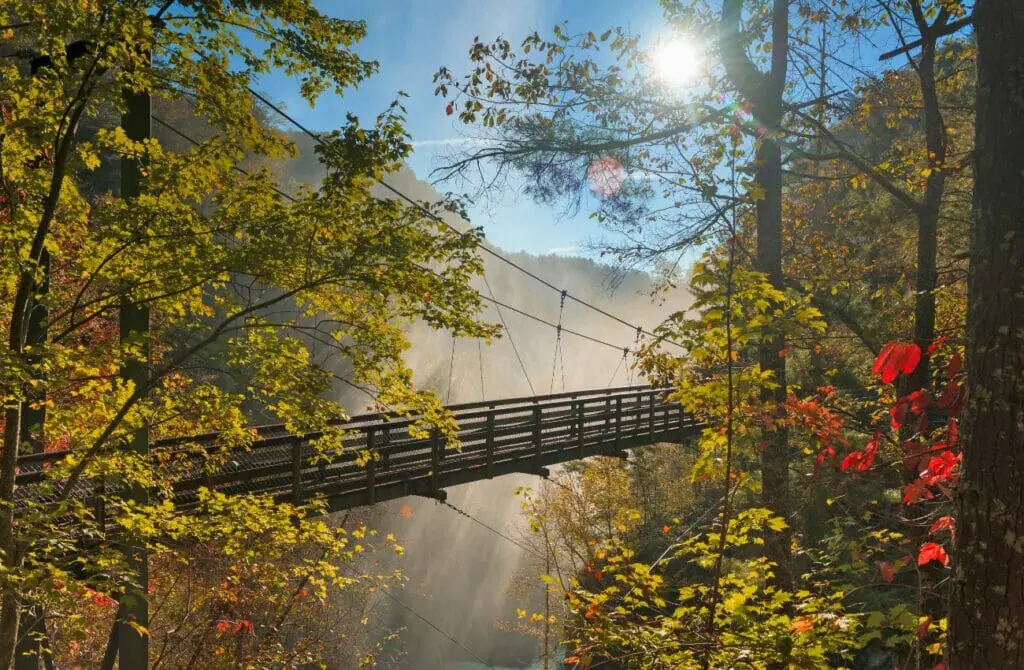

To reduce the stress of your relocation, we recommend engaging a gay realtor in Georgia early in the process to help you find your new perfect home there. They will have up-to-the-minute information on the best cities and areas for LGBT people and be able to match your needs to a neighborhood most suited to you.
You can just start with a no-obligation conversation, and if you decide to continue with your move to Georgia – they will not only have your best interests at heart but also ensure you are treated with dignity and respect throughout the entire process.
Despite these challenges, Georgia’s strong and vibrant LGBTQ+ community and the resources and support systems available make it a compelling place to call home for many LGBTQ+ individuals. Here’s all you need to know about living in gay Georgia!

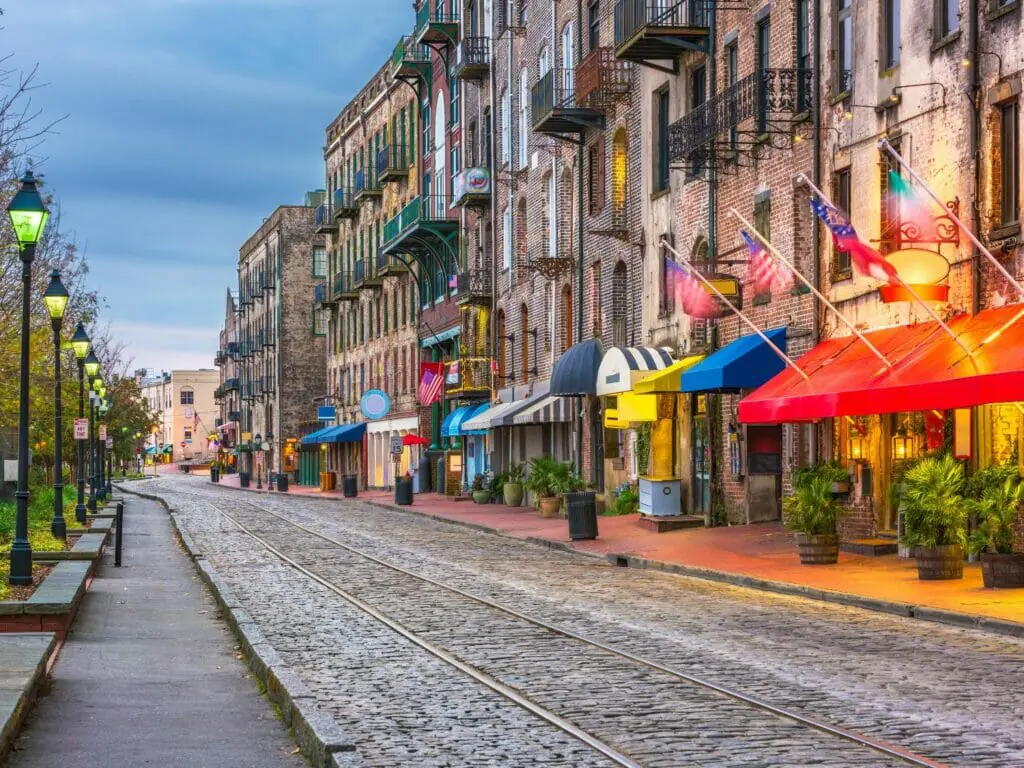
In this article we will cover...
Highlights Of Moving To Gay Georgia
Different aspects of every state make it a unique and tempting proposition to transplants, locals, and visitors – and residents of Georgia are well aware that their state is brimming with hidden gems. After all, this is why many chose to live here.
Once you move here, you’ll be able to quickly befriend locals and spend your free time discovering the best sights and culture Georgia has to offer. On top of this, thanks to an offbeat yet deeply engaged LGBT community, which congregates at a few fabulous queer hot spots, securing a relocation to Georgia should allow you to meet queer people with similar interests.
We are certain they will have many more to add, but to get you started, here are a few highlights of moving to LGBT Georgia.
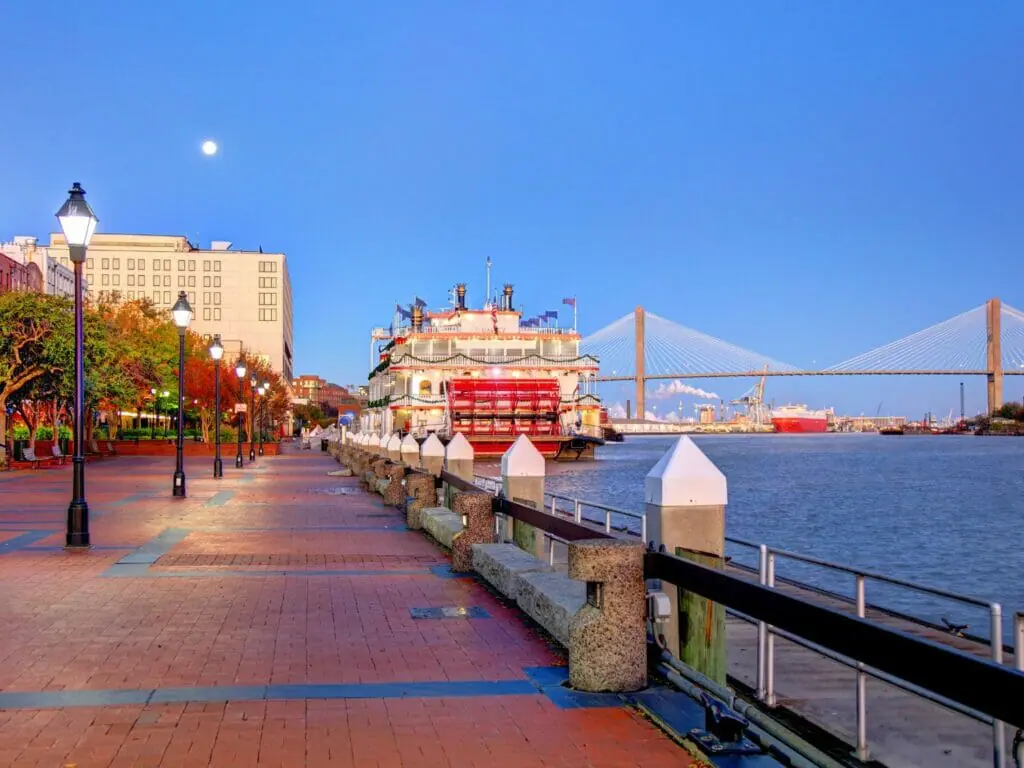
LGBTQ Landmarks
The Gay ATL Flashback website offers an interactive map with in-depth write-ups that are rich with images, and video embeds about LGBTQ landmarks from the city’s history, such as the Nitery Club, where a teenage RuPaul performed with early 1980s bands U Hauls and The Wee Pole.
The Atlanta History Center, which has materials connected to Atlanta’s LGBTQ+ community and progress in its collection, is a must-visit location for queer history enthusiasts.
Peaches Are Everywhere
Georgia is known as the “Peach State,” and there are no fruits sweeter than its peaches. The state sign, which has a peach picture, welcomes motorists as they enter the interstate. Additionally, newcomers might even anticipate seeing a peach on their ID cards.
Georgia is well renowned for producing this fruit, but it also leads the world in nut production. It is safe to state that these are the best pecans because they produce 33% of the nuts in the United States. If you move to gay Georgia, you will never (ever) be short of peaches and pecans.
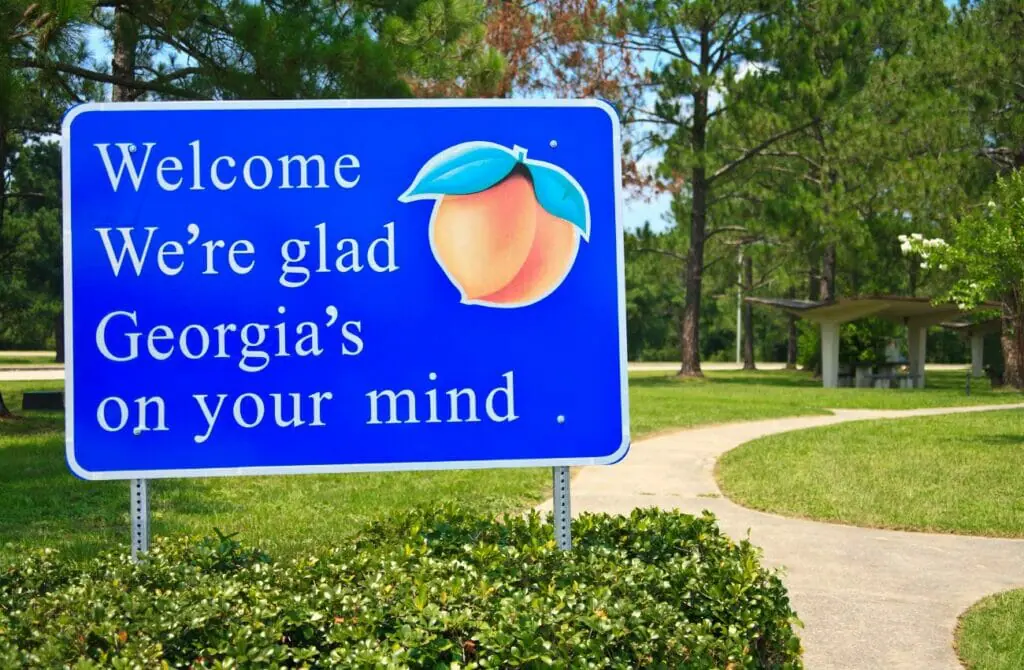
Southern Comfort Food Is A Thing
Since Georgia is agriculturally and geographically diversified, a wide variety of renowned foods are available on your doorstep after moving here. Have your pick of all the traditional southern foods your heart desires, from the highlands to the coastline. Expect award-winning barbeque, pimento cheese, and delectable fried chicken in addition to peaches and pecans.
You may find peaches in ice cream and cobbler at any restaurant. You can also have the greatest brisket and pulled pork with sweet tomato-based sauces while dipping crackers and celery into creamy pimento cheese. Try the acclaimed made-from-scratch pecan pie, traditional chicken and dumplings, and PBR boiled peanuts. Find your fair share of fried dishes, like fried okra and green tomatoes – not to mention the iced tea…
LGBT History
The state is drenched in LGBTQIA+ history and openly celebrates the contributions made to the culture and lore of cities like Savannah by its illustrious LGBTQIA+ people. The Lady Chablis, sometimes known as the Queen of Savannah, is one of its most well-known residents. Before she passed away in 2016 at 59, this drag queen spent many years performing at Club One.
The book and accompanying film “Midnight in the Garden of Good and Evil,” which are based on the alleged murder of male sex worker Danny Hansford by reputable antique dealer Jim Williams, is largely responsible for her notoriety. Many of the scenes from the book that are significant to Savannah’s LGBTQIA+ history can be seen all across the historic district.
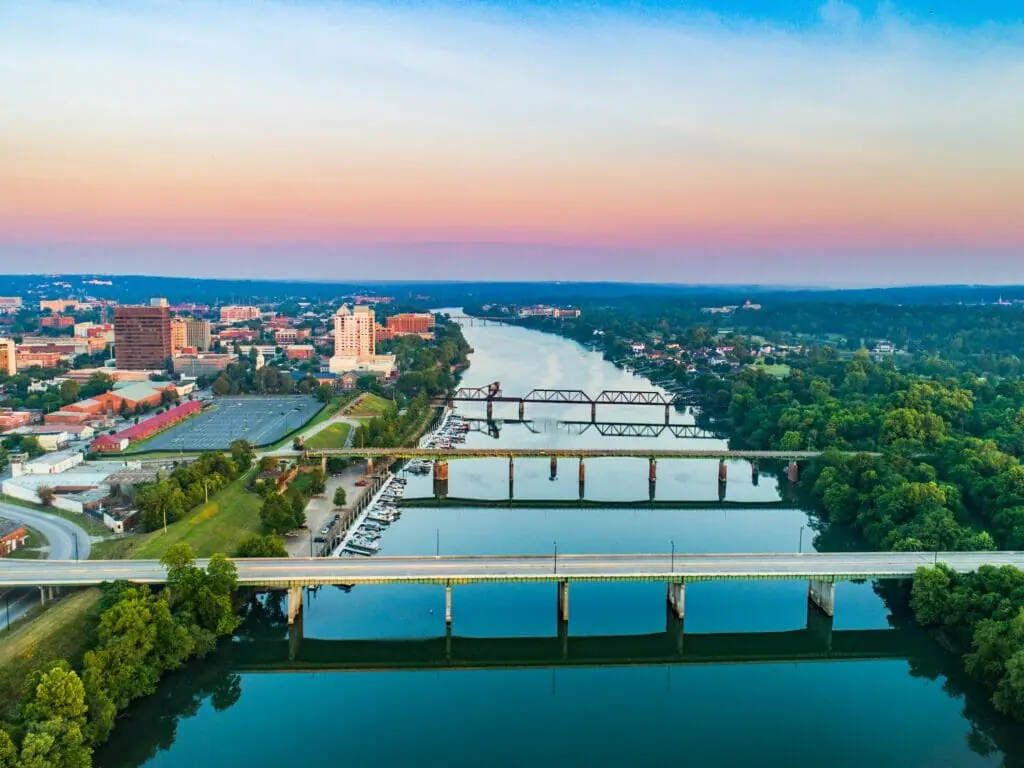
LGBTQ+ Rights In The USA
The laws governing lesbian, gay, bisexual, and transgender people have altered considerably over time in the United States and vary from state to state. In many ways, LGBT rights are some of the best in the world – but the devil is in the detail, and some places are much more hostile to queer life than others.
While same-sex marriage has been legal in every state since the landmark Obergefell v. Hodges ruling on June 26, 2015 (before Obergefell v. Hodges, same-sex marriage was legal in 36 states and Washington, D.C. ), LGBT people are still treated differently in different states – both societally and as inequality under the law.
Over half of all states still allow discrimination on the grounds of sexual orientation and gender identity/expression, while counties and cities within states often have distinct laws as well. While some states permit adoption by all couples, others forbid it for all unmarried couples.
This is all to say what most of us already know is that LGBT rights and equality differ greatly across the USA, and the specifics of family, marriage and anti-discrimination laws are different in every state.
Thus, while it is comforting to know that you can choose to marry whoever you love across the USA (and have it recognized as such) and are protected against hate crimes based on sexual orientation or gender identity (which can be punished under Matthew Shepard and James Byrd, Jr.
Hate Crimes Prevention Act of 2009), there are still many questions you will likely have about moving to Georgia and what you can expect of LGBT life there.
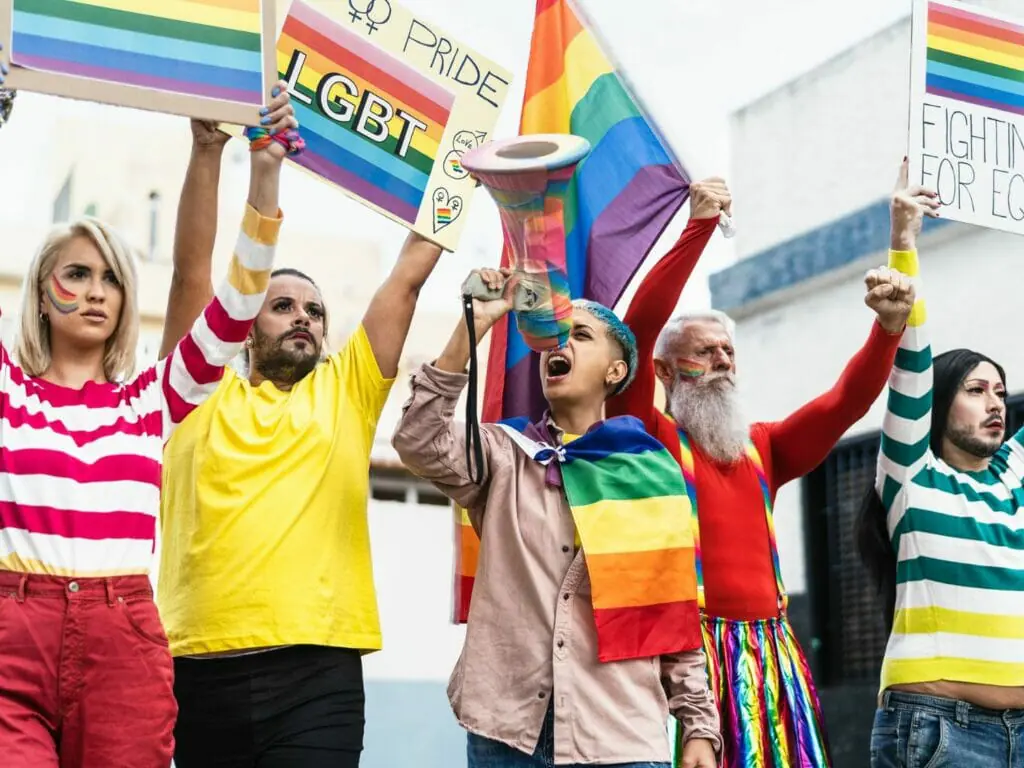
Does Georgia Embrace The LGBTQ Community?
Georgia does not have any statewide legislation or particular policies regarding hate crimes, discrimination, parenting, or relationship recognitions based on someone’s gender identity or sexual orientation.
The state prohibits changing a person’s gender on their driver’s license or birth certificate, and it has a statute that excludes transgender people from Medicaid coverage. A more encouraging development is that equality might be closer than you think.
As per the Public Religion Research Institute, approximately two-thirds of Georgians support fundamental anti-discrimination laws that would safeguard LGBTQ individuals in employment, public places, and housing, whereas less than a third are opposed.
Since Georgia has a large number of conservative congressmen, maintaining the advancements made here requires constant battles at the local level.
The city of Atlanta’s dedication to its gay inhabitants was underlined earlier in 2019 when elected mayor Keisha Lance Bottoms announced the creation of an LGBTQ Advisory Board to maintain open lines of communication between City Hall and the community.
However, other Georgian cities, like Atlanta and Savannah, are friendly to the LGBT community. For example, Savannah is home to an LGBTQIA+ Center that has developed over the course of more than 30 years from meetings in churches to get-togethers in the homes of LGBTQIA+ residents there to a full-fledged community center presently.
The center offers a meeting place for Savannah’s LGBTQIA+ citizens, as well as for young people. The city has a long history of supporting and accepting LGBTQIA+ people, which makes it an excellent destination for LGBTQIA+ tourists.
Savannah is a delightful LGBTQIA+ haven that embraces everyone with open arms, no matter who they are. Once you move to Georgia, your exploration of the city’s extensive past, which includes LGBTQIA+ history, is eagerly awaited.
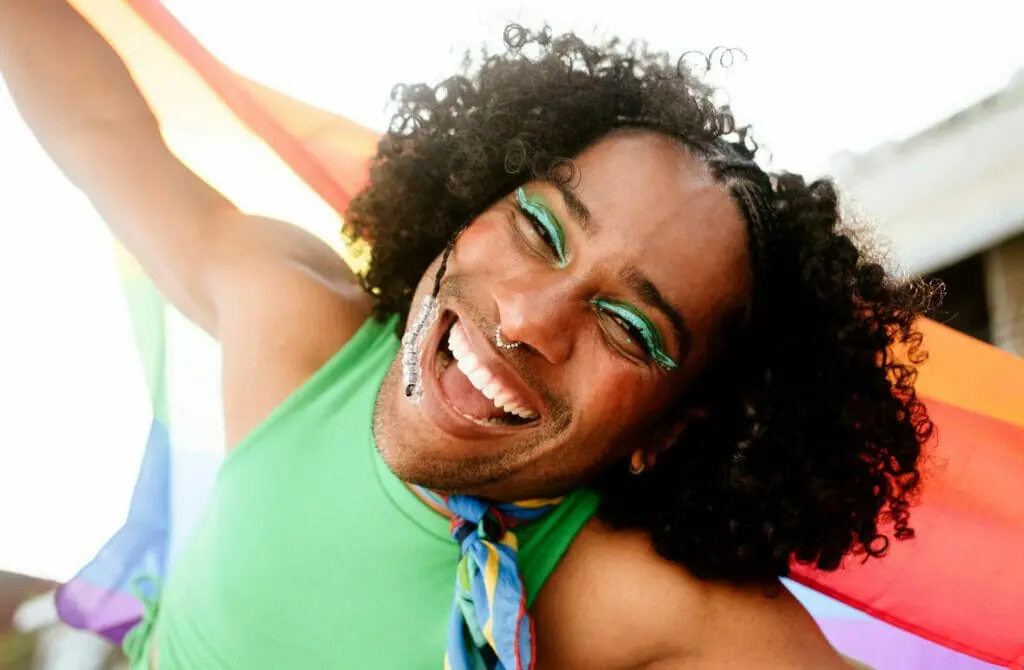

Is Georgia An Expensive State To Move To
Georgia is known for its affordability, with living expenses typically ranging between 3% and 7% below the U.S. median. This range is particularly impressive given the state’s diverse landscape, encompassing bustling cities, serene coastal areas, and tranquil rural regions.
Cities like Augusta, with its blend of Southern charm and growing urban development, reflect this trend of lower living costs. In Augusta, residents enjoy a cost of living that is notably affordable, especially in terms of housing and utilities, compared to larger metropolitan areas in the state like Atlanta.
The variation in living expenses across Georgia’s different regions highlights the state’s ability to cater to a wide range of budgets and lifestyles, all while maintaining an overall cost-effective living environment.
Housing. Georgia’s median price for a home is just $180,675. That is about 20% less than the median home price in the country. Obviously, where you reside also affects this cost. Georgia rents for an economical $980 a month on average, which is less than the U.S. average. However, the situation is different in Atlanta. A one-bedroom apartment’s typical monthly rent is $1,035.
Transportation. In general, gas costs are cheaper than the average for the country. Georgia actually has the 15th-lowest gas costs out of all the states. Unfortunately, auto insurance easily overcomes that. Georgia ranks 11th in terms of the cost of auto insurance, at roughly $148 per month. Georgia has a 5% greater cost of transportation than the rest of the country.
Utilities. Georgia’s cost of utilities is around 3% more expensive than the rest of the country on average. Compared to the national average, Georgia’s average monthly power bill is $14.70 more expensive at $126.38.
Food. The average price of food is between 3% and 5% less expensive than the country’s average.
Healthcare. Given that healthcare expenses in Georgia are approximately 4.5% lower than those nationwide, you will probably also find them to be reasonable.
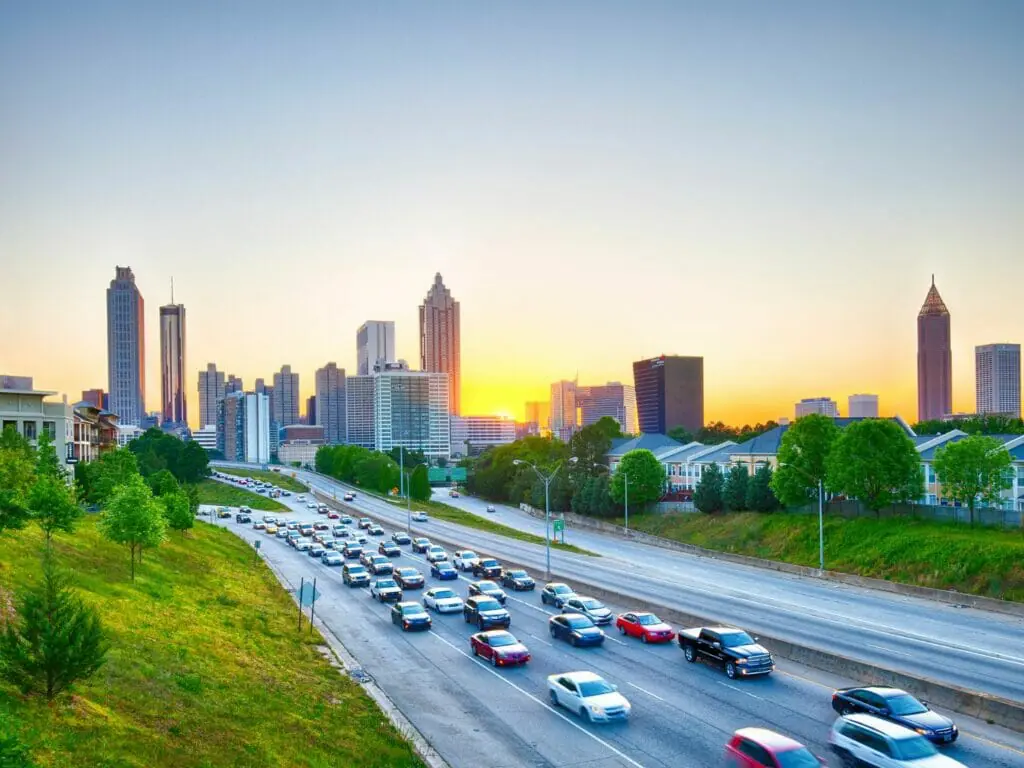
LGBTQ+ Community Organizations In Georgia
Wherever you live, it is essential that you support LGBT organizations in any way you can use so that they can keep reaching out to and assisting other, more vulnerable members of the community. After all, we are stronger when we work together, and each of us will likely have a time in our lives when we require a little extra support.
Thankfully, Georgia has a supportive and diverse LGBTQ community, which has helped the state become more gay-friendly in recent years.
As a result, there are a variety of LGBT resources available to community members, their allies, friends, and families – and you ought to feel free to utilize them or consider giving your support as needed to keep your new home state moving forwards! They are also great places to meet new people and find your queer chosen family in Gay Georgia.
The goal of Georgia Equality is to increase opportunities for LGBT people and their allies across the state. Georgia Equality is made up of two organizations that were founded in 1995 and are joined by a shared vision while performing different roles in the fight for equality.
Georgia Equality, Inc. works 365 days a year to advance pro-equality laws and choose impartial representatives. They carry out voter registration and educational initiatives through the Equality Foundation of Georgia, enlighten policymakers, and seek to unite and mobilize LGBTQ citizens and supporters to advance equality in urban, suburban, and rural communities throughout the state.
Since its founding in 1994, the OUT Georgia Business Alliance has fought for a business climate that is as inclusive and equitable as possible. It also offers support and resources to encourage economic growth and foster meaningful community connections that have an impact throughout the State of Georgia.
They promote an environment that is equitable and inclusive for business, offer assistance and resources to encourage economic growth, and foster significant community linkages and impacts throughout the State of Georgia.
They believe that every Georgian should have equal access to the tools, opportunities, and help they need to launch, expand, or scale a business and engage safely and completely in Georgia’s workplaces and communities.
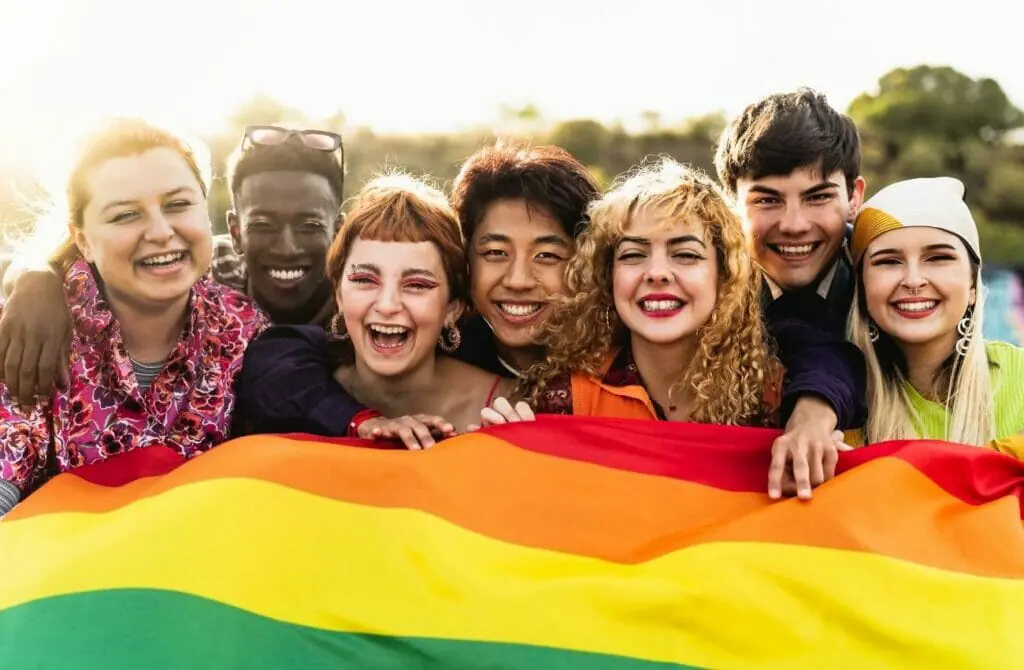
Most Gay-Friendly Cities In Georgia
In Georgia, there are many wonderful areas to live in, but when relocating to LGBTQ Georgia, you should be cognizant that there are a few cities and gaybourhoods that are nearer to the queer hubs of life. Knowing them will allow you to pull your U-Haul up to your new house in a gay-friendly neighborhood or town that is best suited to your needs.
If you’re a lesbian, gay, bisexual, transgender, or otherwise queer person seeking a welcoming neighborhood with facilities you’ll cherish, start with these top gay and gay-friendly Georgia cities to discover your perfect new home, each with its distinct personality.
Give yourself enough time to acquaint yourself with Georgia’s diverse personalities, and remember that there is no one perfect answer when it comes to the most gay-friendly places in Georgia… and just because it does not make our list doesn’t necessarily make it a bad option.
We recommend speaking to a local LGBT real estate agent for a more detailed understanding of the best options today. Now, let’s take a look at where these fabulously gay-friendly cities in Georgia are and why you might want to consider them!
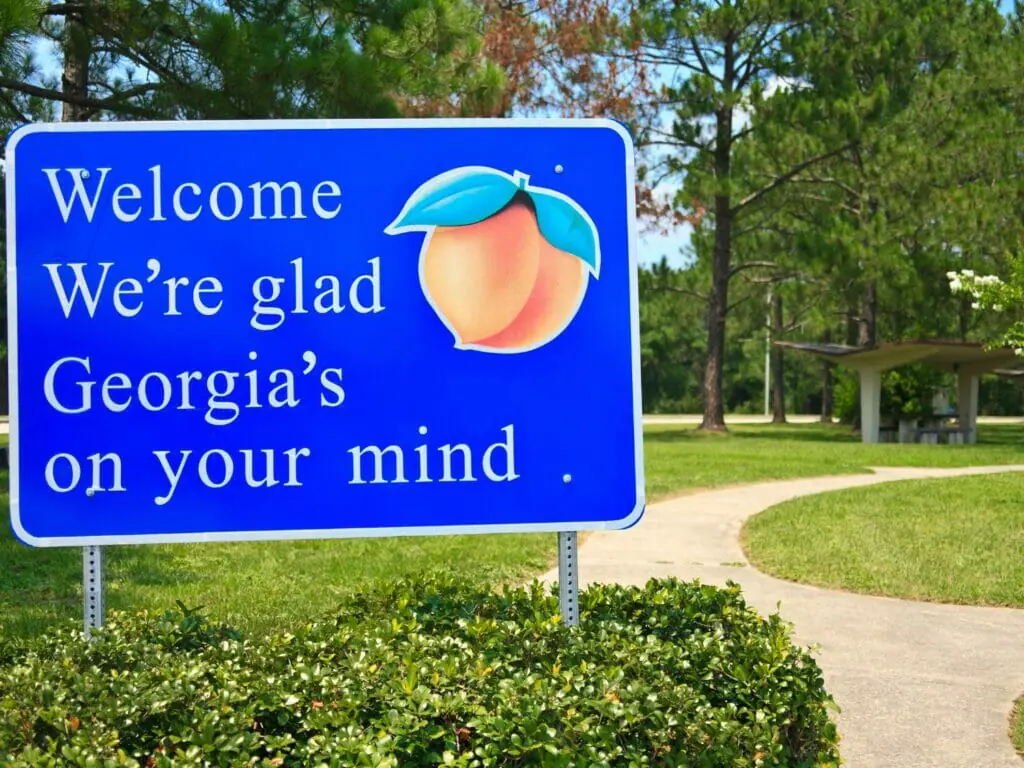
Atlanta
Atlanta has a long history of serving as the gay South’s cultural hub and one of the most LGBT-friendly cities in Georgia. With the Atlanta Gay and Lesbian Pride celebration held in October, the city hosts the largest LGBT community gatherings in the country. Since its inception in 1971, this celebration has held an annual festival to honor National Coming Out Day.
In September, locals can take part in Black Gay Pride, while MondoHomo, an arts-focused celebration, takes place in May. The exclusive Spelman College for women is located in Atlanta. Atlanta Gay & Lesbian Chamber of Commerce, which supports the expansion of LGBT-owned businesses and nonprofit organizations, is also present in the city.
With mostly Black establishments, eccentric hipster hangouts, and some of the sexiest bartender personas you’ll ever meet, Atlanta is home to a vibrant, diverse LGBTQ nightlife scene.
These bartenders deliver genuine hard drinks, with very few exceptions. Check out the most recent online issues of Project Q and Peach for a schedule of noteworthy nighttime activities and events taking place while you’re here.
Georgia’s capital is also a vacation and year-round resident mecca for LGBTQ people in the region and home to the Atlanta Pride Festival. Atlanta is one of the Southeast’s quirkiest, most diverse, and civil rights history-laden cities.
It was also RuPaul’s home during the 1980s, where the presently-iconic drag queen evolved his skills as an entertainer in live bands, public access TV, and dance. Marvel Studios’ significant presence in the city has helped make it one of North America’s key centers for film and television production, which is good news for queer star spotters.
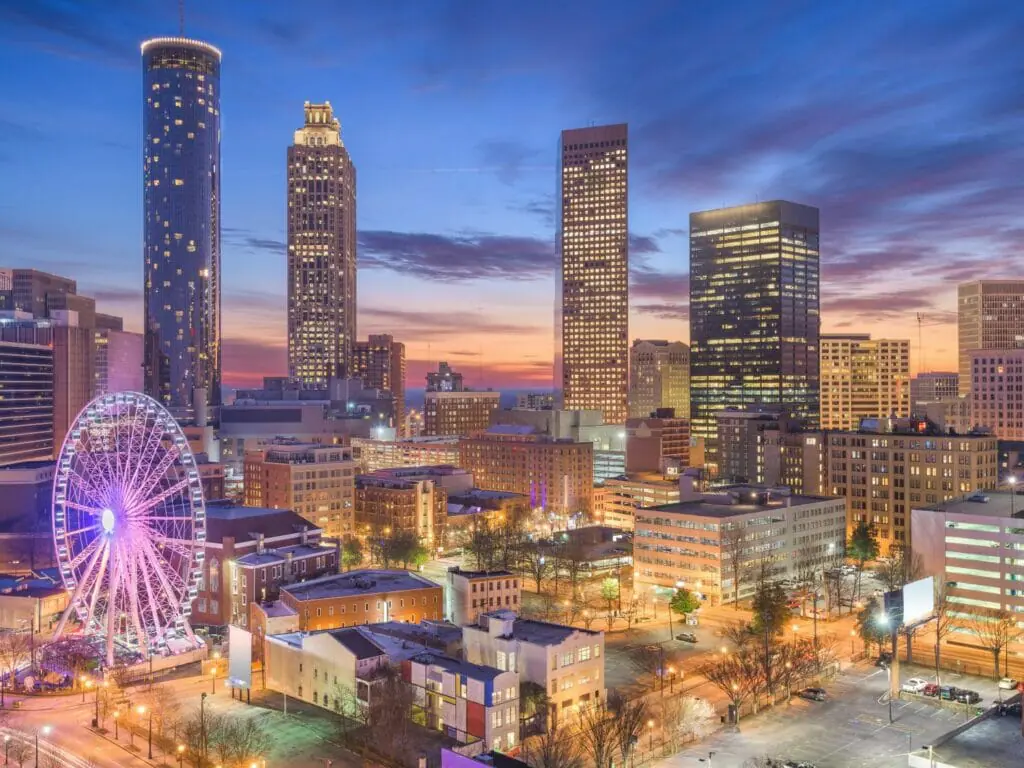
Savannah
You might not think of the Southern part of the country as a region that is home to an LGBTQIA+ haven, but Savannah is one such place. In actuality, a just society has always existed in the metropolis.
General James Oglethorpe established Savannah in 1733, which was seen as a shelter for the underprivileged in England and advocated a degree of religious freedom that was certainly not the standard at the time.
Diversity-friendly attitudes are ingrained in the very fabric of this city. Two of the numerous things that make this city such a beautiful place are an acceptance of individuals for who they are as human beings and tolerance for what is different.
Savannah’s LGBTQIA+ community is prospering today, even though the city’s gay scene is different from that of other cities. To put it another way, Savannah absolutely lacks LGBTQIA+ pubs and clubs.
However, this is not always a terrible thing. This is due to the fact that the local LGBTQIA+ community does not feel the need to open their own bars. The city is so welcoming of LGBTQIA+ persons that locals and tourists can go to any pub without worrying about being turned away.
The Historic District of Savannah is home to a sizable number of LGBTQIA+-owned and queer-welcoming businesses. This is likely the reason why, in the present day, the city hardly ever raises the subject of LGBTQIA+ rights. In Savannah, it is unthinkable to deny someone their fundamental rights and human decency, much less LGBTQIA+ persons.
During “Human Rights Pride Week” in 1994, the city’s then-mayor Susan Weiner proclaimed Savannah to be a welcoming location for gays and lesbians to reside and travel. In comparison to other cities at the time that was roughly the same size, this was quite progressive.
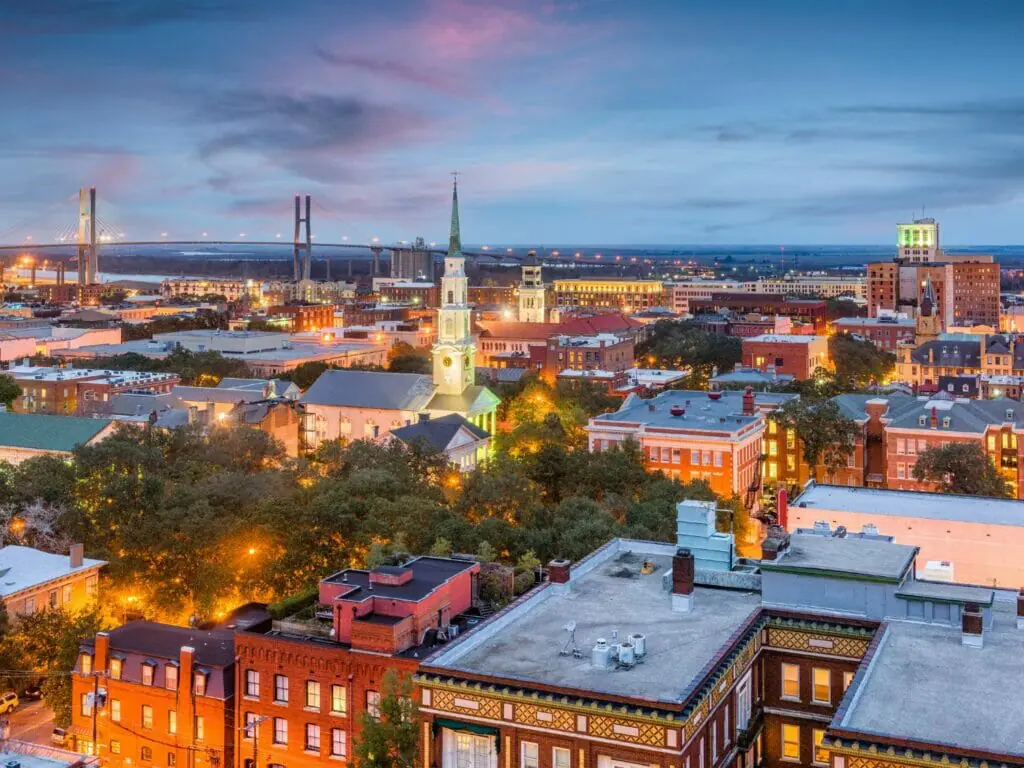
Blue Ridge
The county seat of Fannin County, Blue Ridge, was incorporated in 1886. The southernmost part of the Appalachian Mountain range that extends into the region gave rise to the city’s name, and Blue Ridge is renowned for its breathtaking mountain views.
With access to the Toccoa River, and Lake Blue Ridge, Blue Ridge has earned the moniker “Trout Fishing Capital of Georgia,” drawing visitors from both far and near. The Blue Ridge Scenic Railway departs from the city’s historic downtown terminal, offering rides to visitors in downtown Blue Ridge.
An expanding and vibrant LGBTQIA+ community may be found in the alpine city of Blue Ridge, which attracts residents and tourists. This city honors its diversity and was recognized in 2019 as Georgia’s gay-friendliest city. One of the highest concentrations of LGBT couples in the state can be found in Blue Ridge.
Due to the prevalence of LGBTQIA+-owned and run businesses in the city’s downtown area, there exists a welcoming atmosphere. In a city that was severely impacted by the demise of its once-thriving logging industry, the recent inflow of LGBTQIA+ inhabitants and business owners has aided in the resuscitation of the downtown economic atmosphere with new stores and restaurants.
Blue Ridge is a mountain hamlet with stunning mountain views, numerous festivals, and some of the cutest bed and breakfasts around.
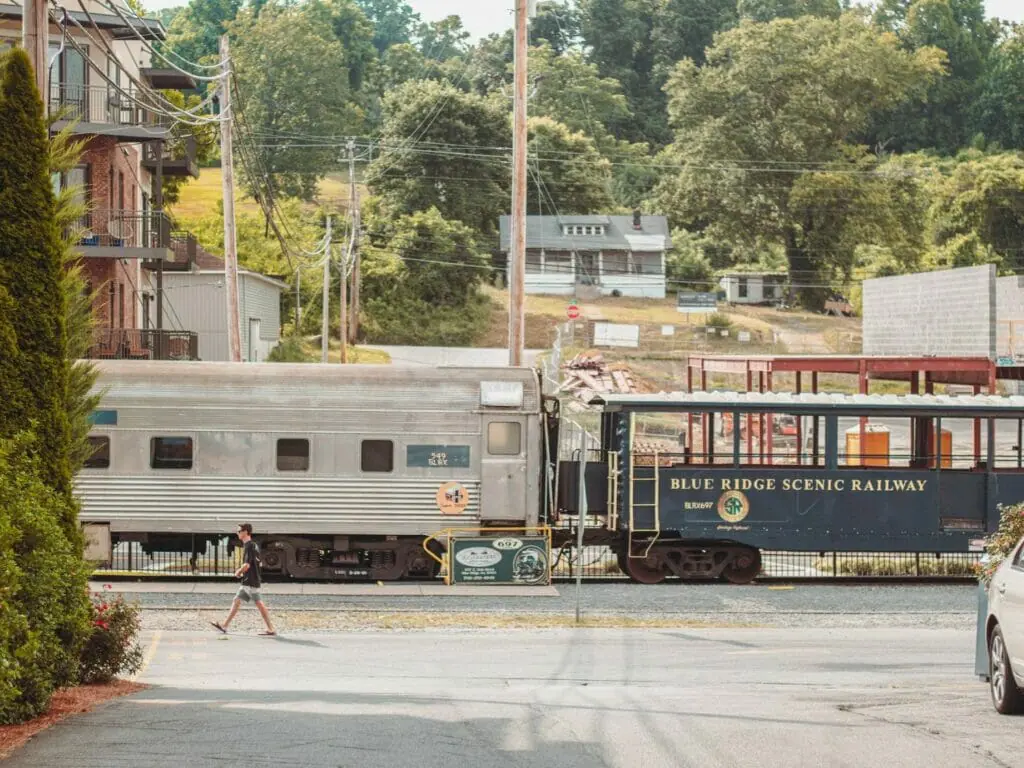
Finding Gay Realtors In Georgia
When looking for the ideal realtor, why would you consider someone’s sexuality? This may seem strange at first, but there are several reasons why contacting a gay realtor in Georgia is a great way to find your dream house.
After all, when it relates to one of life’s most significant transactions, it’s not unreasonable to expect fair, equal, and honest representation from someone who understands the queer community’s particular needs and wishes.
Furthermore, unfortunately, many people (up to a third of Americans) believe that our community does not deserve protection and dignity in housing, adoption, employment, and other areas of life.
So it’s no surprise that LGBT people who use mainstream realtors often describe feelings of discomfort, unnecessary trouble, unenthusiastic representation, or even antagonism or outright contempt. Everyone deserves a pleasant, stress-free home buying or selling experience while being adequately represented, and this is why we feel you should hire a gay realtor to assist you in finding your future home.
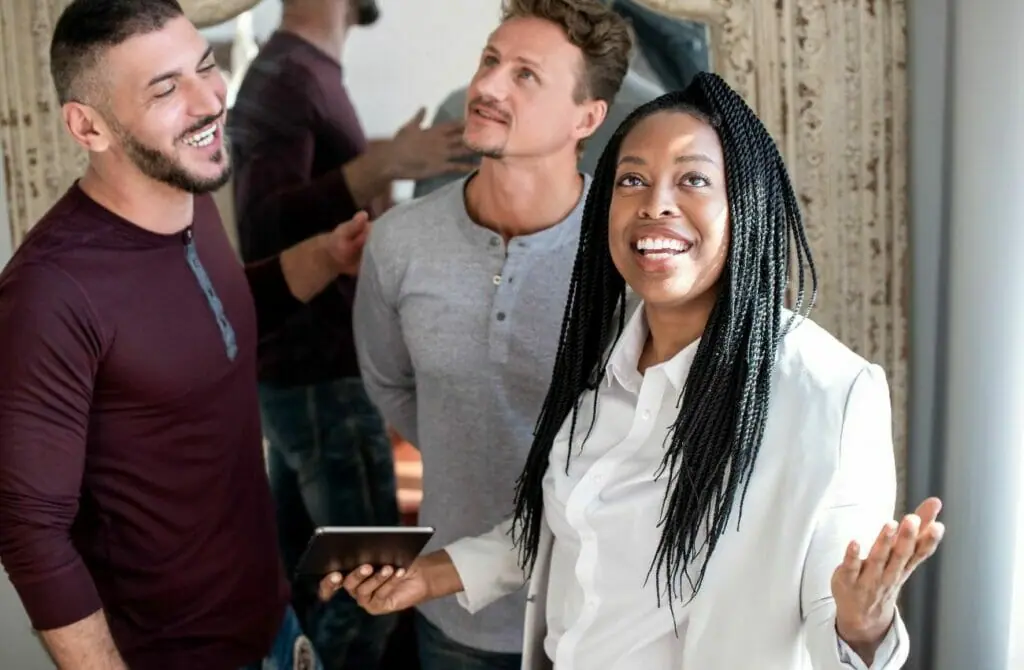
LGBTQ realtors are more likely to be familiar with the diverse communities in their area and know which ones may be best suited to you when looking for a home.
That’s not to say a heterosexual realtor isn’t capable, but they’ve probably never had to address many of the issues LGBT people face. Rather than just being concerned with how bustling, fashionable, or up-and-coming a neighborhood is (or what it may appear like), gay realtors conduct extensive research into the neighborhoods in which they sell homes to ensure that clients are safe.
It used to be challenging to locate professional LGBT-friendly real estate agents in Georgia, and it was virtually impossible to find one if you were relocating here from out of state and didn’t have access to a local referral.
You no longer have to search for a realtor without knowing whether or not they are accepting of others because you can use a list of gay, lesbian, and gay-friendly agents in Georgia to do all of your homework for you.
Simply go to the page, and you’ll be presented with a free list of gay, lesbian, and gay-friendly agents who can help you with your relocation, as well as other useful information like LGBT+friendly schools, shopping, storage firms, tradespeople, and more.
Read the biographies of LGBT real estate agents, then choose the one that is right for you. It’s critical that you find someone who will be by your side and support you and your family during one of life’s most exciting occasions.
Even better, there is no hidden motive, cost, or obligation whatsoever!
